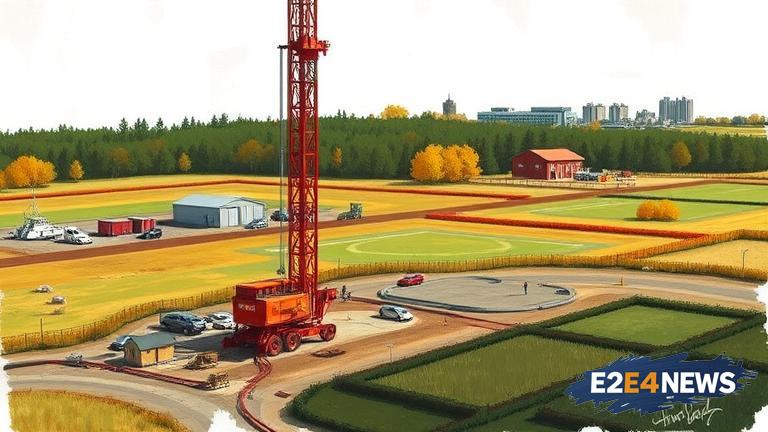A petition circulating in Scarborough has brought attention to the contentious issue of small-scale fracking, a method of extracting oil and gas from shale rock formations. The petition, which has garnered significant support from local residents, calls for a ban on small-scale fracking in the area. Proponents of the petition argue that fracking poses significant environmental and health risks, including water contamination, air pollution, and increased seismic activity. On the other hand, supporters of fracking claim that it can provide a reliable source of energy, create jobs, and stimulate local economies. The debate has sparked a wider discussion on the role of fracking in the UK’s energy mix, with some arguing that it is a necessary step towards energy independence and others claiming that it is a reckless pursuit of fossil fuels. The UK government has been supportive of fracking, with the Prime Minister stating that it is a key part of the country’s energy strategy. However, opposition to fracking has been fierce, with many councils and communities rejecting plans for fracking operations. The petition in Scarborough is just one example of the growing resistance to fracking, with similar campaigns springing up across the country. Despite the controversy, fracking operations have already begun in some parts of the UK, with companies such as Cuadrilla and Ineos leading the charge. The industry argues that fracking can be done safely and responsibly, with proper regulation and oversight. However, critics point to examples of fracking gone wrong, such as the contamination of water sources and the triggering of earthquakes. The scientific community is also divided on the issue, with some studies suggesting that fracking can have serious environmental and health impacts, while others claim that the risks are minimal. As the debate rages on, it is clear that the issue of fracking is complex and multifaceted, with no easy answers. The petition in Scarborough is a testament to the passion and concern of local residents, who are determined to make their voices heard on this critical issue. The outcome of the petition is uncertain, but one thing is clear: the debate over fracking is far from over. In fact, it is likely to continue for many years to come, as the UK grapples with the challenges of energy production and environmental protection. The government will need to carefully consider the evidence and weigh the competing interests of different stakeholders, including local communities, industry leaders, and environmental groups. Ultimately, the decision on whether to allow small-scale fracking in Scarborough and other parts of the UK will have significant implications for the country’s energy future and its commitment to reducing greenhouse gas emissions. The UK has set ambitious targets to reduce its carbon footprint, and the role of fracking in achieving these goals is a subject of intense debate. As the world transitions towards a low-carbon economy, the UK will need to balance its energy needs with its environmental obligations, and the issue of fracking will be a critical part of this conversation. The petition in Scarborough is a small but significant part of this larger discussion, and its outcome will be closely watched by communities and stakeholders across the country. The future of fracking in the UK is uncertain, but one thing is clear: the debate will continue to be fierce and contentious, with no easy answers in sight. The government will need to navigate this complex issue with care and sensitivity, taking into account the concerns of local residents, the interests of industry leaders, and the need to protect the environment. The outcome of the petition in Scarborough will be an important indicator of the direction of travel on this issue, and will likely have significant implications for the future of fracking in the UK.
